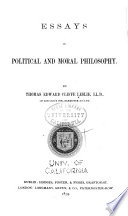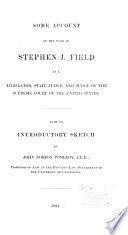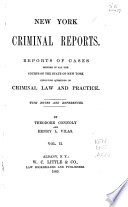 The property which every man has in his own labour, as it is the original foundation of all other property, so it is the most sacred and inviolable. The patrimony of a poor man lies in the strength and dexterity of his hands; and to hinder him from employing... The property which every man has in his own labour, as it is the original foundation of all other property, so it is the most sacred and inviolable. The patrimony of a poor man lies in the strength and dexterity of his hands; and to hinder him from employing...  Blackwood's Edinburgh Magazine - Page 1731856Full view Blackwood's Edinburgh Magazine - Page 1731856Full view - About this book
 | Thomas Edward Cliffe Leslie - 1879 - 510 pages
...policy of justice and equal laws. Arguing against the law of apprenticeship, the philosopher said: 'The property which every man has in his own labour,...in the strength and dexterity of his hands, and to binder him from employing his strength and dexterity in what manner he thinks proper for his own advantage... | |
 | Luther Tracy Townsend - 1879 - 262 pages
...the rest of the sentence. Correct the following : The property which every man has in his own labor, as it is the original foundation of all other property, so it is the most sacred and inviolable. 6. An omission of words is admissible whenever they can be supplied in the mind with such certainty... | |
 | Henry Dunning Macleod - 1881 - 458 pages
...Qualities ; in his own Labour ; or in his capacity to render service of any sort. As Smith says — ' The Property which every man has in his own Labour,...Property, so it is the most sacred and inviolable.' Now a person may sell the Right to demand some Service or Labour from him. As all these services, though... | |
 | Henry Dunning Macleod - 1881 - 450 pages
...his Fortune, so do they likewise of that of the society to which he belongs.' So also he says — ' The Property which every man has in his own labour....of all other property, so it is the most sacred and inviolate. The Patrimony of the poor man lies in the strength and dexterity of his hands.' These passages... | |
 | Chauncey F. Black, Samuel B. Smith - 1881 - 556 pages
...legislative authority of the State * " The property which every man has in his own labor," says Adam Smith, "as it is the original foundation of all other property,...is the most sacred and inviolable. The patrimony of the poor man lies in the strength and dexterity of his own hands; and to hinder him from cmploying... | |
 | Henry Dunning Macleod - 1881 - 452 pages
...Pr°Pertv which every man has in his own labour, ^^£: CH. vi. Smith admits Rights to be Wealth 77 as it is the original foundation of all other property, so it is the most sacred and inviolate. The Patrimony of the poor man lies in the strength and dexterity of his hands.' These passages... | |
 | James Platt - 1882 - 234 pages
...for the defence of the consumer and the liberty of the subject against such oppressive monopolies. " The property which every man has in his own labour,...the original foundation of all other property, so is it the most sacred and inviolable. The patrimony of a poor man lies in the strength and dexterity... | |
 | James Platt - 1883 - 538 pages
...for the defence of the consumer and the liberty of the subject against such oppressive monopolies. " The property which every man has in his own labour,...the original foundation of all other property, so is it the most sacred and inviolable. The patrimony of a poor man lies in the strength and dexterity... | |
 | Arnold Toynbee - 1884 - 304 pages
...apprenticeship closed innumerable employments. Adam Smith's condemnation of these restrictions is memorable : " The property which every man has in his own labour,...dexterity of his hands, and to hinder him from employing this strength and dexterity in what manner he thinks proper, without injury to his neighbour, is a... | |
 | 1885 - 704 pages
...state. " The property," says Smith, in his " Wealth of Nations," " which every man has in his own labor, as it is the original foundation of all other property,...is the most sacred and inviolable. The patrimony of the poor man lies in the strength and dexterity of his own hands, and to hinder him from employing... | |
| |